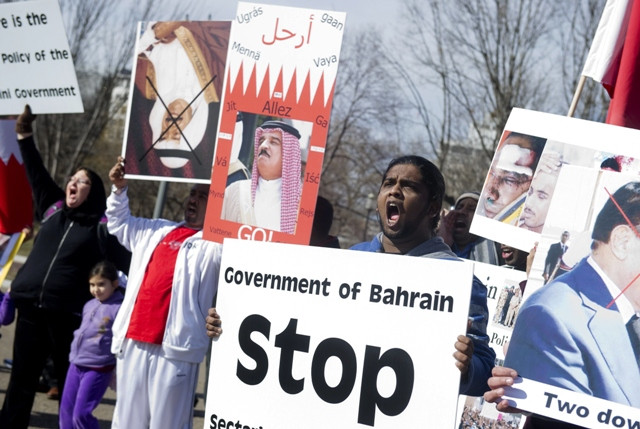Middle Eastern stability
Pakistan needs to maintain a position of studious neutrality as good relations with Iran, Saudi Arabia are important.

Apart from the fact that the Gulf states are acting as agents of a repressive regime that has lost its legitimacy, the conflict in Bahrain threatens wider Middle Eastern stability. The ruling family in Bahrain has been accusing Iran of being behind the uprising, a charge that is not borne out by any evidence. With Iran now urging the Saudis to back down, there is a danger that Bahrain could become a proxy for a larger Middle Eastern fight, with the sides divided purely along sectarian lines. The last thing the Middle East needs right now is a Shia-Sunni conflict.
Pakistan, for its part, needs to maintain a position of studious neutrality as good relations with both Iran and Saudi Arabia are important for us. That, unfortunately, has not been the case so far. Even before the protests began, many Pakistanis were serving in the Bahraini police force. Now, as this newspaper reported, the Fauji Foundation is recruiting mercenaries to fight for the dying regime. We have obviously not learnt our lesson from the Iranian Revolution of 1979, where we supported the Shah till the end. Our relations with the new regime suffered as a result. If, and when, the Bahraini people take control of their own destiny, we should want them to consider Pakistan an ally, not an enemy.
Published in The Express Tribune, March 16th, 2011.















COMMENTS
Comments are moderated and generally will be posted if they are on-topic and not abusive.
For more information, please see our Comments FAQ